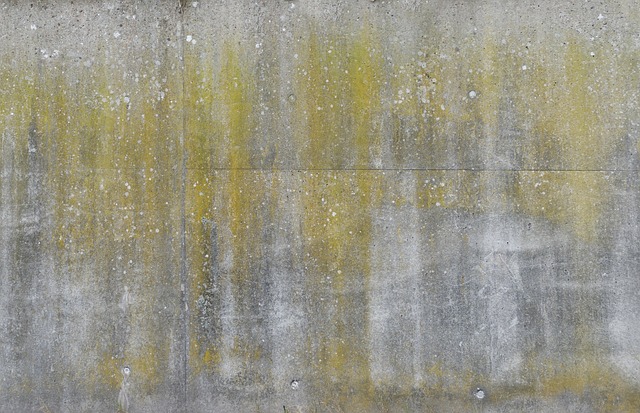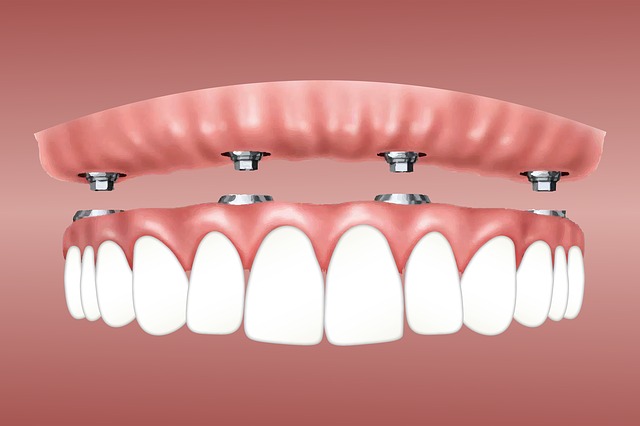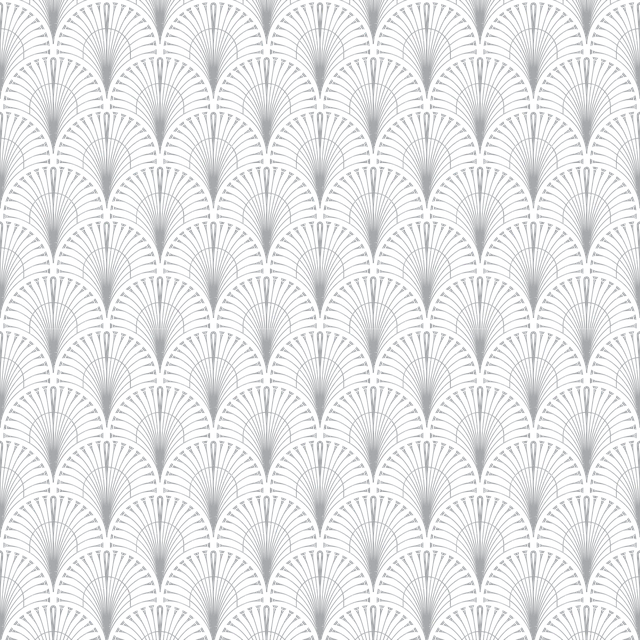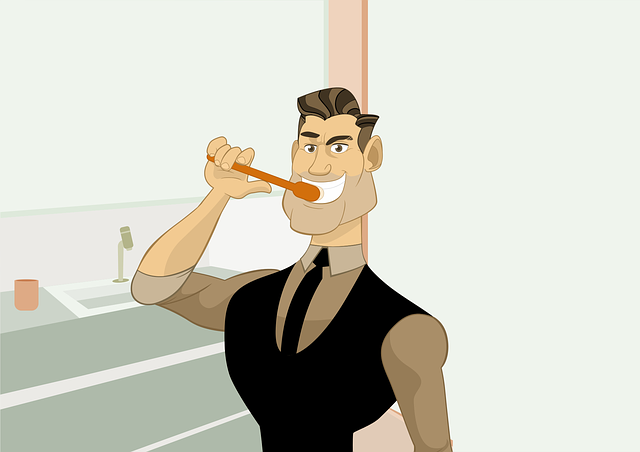Lost Retainer Blues: What If I Lose My Retainer?
Losing a retainer can be a frustrating and anxiety-inducing experience. Whether you accidentally misplaced it or it mysteriously vanished into thin air, the panic of losing this essential dental device is all too real. But fret not, dear reader, for we are here to enlighten you on what to do when faced with the dreaded “Lost Retainer Blues.” In this article, we will explore the various options available to you, ensuring that you regain your beautiful smile and put your retainer worries to rest. So, let’s dive in and discover the solutions that will have you saying goodbye to those lost retainer blues once and for all!
1. The Importance of Retainers: Preserving Your Orthodontic Results
After months or even years of wearing braces, achieving that perfect smile is a significant milestone. However, it’s important to remember that orthodontic treatment doesn’t end with the removal of braces. The next crucial step in preserving your newly aligned teeth is wearing retainers. Retainers play a vital role in maintaining the results you’ve worked so hard to achieve. Here’s why retainers are of utmost importance:
1. Preventing Teeth Relapse: Your teeth have a natural tendency to shift back to their original positions after braces are removed. This is known as teeth relapse. Wearing retainers helps prevent this relapse by holding your teeth in their new positions, allowing the bone and tissues surrounding them to adapt and stabilize.
2. Protecting Your Investment: Orthodontic treatment is a significant investment of both time and money. By wearing retainers as recommended by your orthodontist, you are protecting that investment. Retainers help maintain the alignment achieved by braces, ensuring that you enjoy the full benefits of your orthodontic treatment for years to come.

2. How to Prevent Losing Your Retainer: Tips for Retainer Care and Storage
Proper care and storage of your retainer is crucial to prevent it from getting lost. Here are some tips to help you keep track of your retainer and ensure its longevity:
- Always keep your retainer in its case: When you’re not wearing your retainer, make sure to store it in its designated case. This will help protect it from damage and reduce the chances of misplacing it.
- Create a routine: Make it a habit to always put your retainer in the same place when you’re not using it. Whether it’s a specific drawer, shelf, or a designated spot on your nightstand, having a consistent routine will significantly decrease the likelihood of losing it.
- Avoid wrapping it in tissue or napkins: It’s easy to forget about your retainer when it’s wrapped in a napkin or tissue while eating. Instead, use the case provided or invest in a retainer pouch that can easily be stored in your bag or pocket.
To further ensure the safety of your retainer, consider these additional tips:
- Keep it away from pets: Pets, especially dogs, have a tendency to chew on objects they find interesting. To avoid the risk of your retainer becoming a chew toy, keep it out of reach from your furry friends.
- Don’t leave it in hot environments: Exposing your retainer to high temperatures can cause it to deform or become damaged. Avoid leaving it in places like your car’s dashboard or near heaters.
- Regularly clean your retainer: Proper hygiene is essential for maintaining your retainer’s quality. Clean it daily using a soft toothbrush and non-abrasive toothpaste, and soak it in a retainer cleaning solution at least once a week.

3. Oops! I Lost My Retainer: What Should I Do Next?
If you have lost your retainer, don’t panic! There are a few steps you can take to resolve the situation. First, retrace your steps and check all the places you’ve been since you last remember having your retainer. It’s easy for small objects like retainers to get misplaced, so it’s worth taking the time to thoroughly search for it.
If you still can’t find your retainer, it’s important to contact your orthodontist as soon as possible. They will be able to guide you on the next steps to take. In the meantime, avoid putting pressure on your teeth or attempting to wear any other retainer, as it may cause discomfort or even harm your teeth alignment. Remember, it’s crucial to consult with a professional to ensure you follow the correct procedure and avoid any potential complications.
4. The Costly Consequences: Why Replacing a Lost Retainer Matters
Replacing a lost retainer may seem like a hassle, but the consequences of not doing so can be quite costly. Here’s why it’s important to invest in a replacement:
1. Dental misalignment: When a retainer is lost or not worn regularly, your teeth can shift out of place. This can undo the progress made during orthodontic treatment and lead to the need for additional procedures to correct the alignment. Investing in a replacement retainer can help maintain the results achieved through orthodontic treatment.
2. Oral health issues: Not wearing a retainer as prescribed can result in oral health problems. When teeth shift, it becomes harder to clean them properly, increasing the risk of tooth decay, gum disease, and other oral issues. By replacing a lost retainer, you can maintain good oral hygiene and avoid these costly dental problems in the long run.

5. Seeking Professional Help: Contacting Your Orthodontist for Guidance
When it comes to seeking professional help for your orthodontic needs, contacting your orthodontist is the best course of action. Your orthodontist is an expert in the field and can provide you with the guidance and assistance you need to address any concerns or issues you may have with your orthodontic treatment.
There are several reasons why you may want to reach out to your orthodontist:
- If you are experiencing any discomfort or pain with your braces or aligners, it is important to contact your orthodontist as soon as possible. They can help alleviate any discomfort and ensure that your treatment is progressing smoothly.
- If you have any questions or concerns about your treatment plan or progress, your orthodontist is the best person to turn to. They can provide you with the information and reassurance you need to feel confident in your orthodontic journey.
- If you encounter any issues with your braces or aligners, such as loose brackets or broken wires, contacting your orthodontist is crucial. They can guide you on how to address these problems and schedule an appointment if necessary.
Remember, your orthodontist is there to support you throughout your orthodontic treatment. Don’t hesitate to reach out to them whenever you need guidance or assistance. They have the knowledge and expertise to ensure that your smile transformation is a success.
6. Retainer Alternatives: Exploring Options When Your Retainer Is Lost
When you find yourself in the unfortunate situation of losing your retainer, there are several alternatives you can explore before rushing to get a replacement. Here are some options to consider:
1. Check your dental insurance: Some dental insurance plans cover the cost of a lost retainer or offer a partial reimbursement. Contact your insurance provider to find out if you have any coverage for retainer replacements.
2. Contact your orthodontist: Reach out to your orthodontist and explain the situation. They may have some solutions or recommendations for you. They might be able to provide you with a temporary retainer until you can get a permanent replacement.
3. Retrace your steps: Think back to where you might have misplaced your retainer. Check all the places you’ve been since you last remember having it. It’s possible that you may find it in an unexpected location.
4. Consider a DIY moldable retainer: Temporary moldable retainers can be purchased at some pharmacies or online. These can serve as a short-term solution until you can see your orthodontist for a proper replacement.
5. Visit a local dental school: Dental schools often offer reduced-cost or free dental services to the public. They may be able to provide you with a replacement retainer at a more affordable price.
6. Discuss payment options: If none of the above alternatives are feasible for you, talk to your orthodontist about payment plans or financing options for a new retainer. They may be able to work out a solution that fits within your budget.
Remember, it’s important to address the issue of a lost retainer as soon as possible to prevent any shifts or movement in your teeth. Consider these alternatives before making a decision, and consult with a dental professional for personalized advice.
7. Learning from Mistakes: Strategies to Avoid Losing Your Retainer Again
Retainers are an essential part of orthodontic treatment, ensuring that the progress achieved during braces or aligner therapy is maintained. However, losing a retainer can be frustrating and costly. To help you avoid this mistake in the future, we have compiled a list of effective strategies:
1. Establish a routine: Make wearing and caring for your retainer a part of your daily routine. Designate a specific time and place to put on and remove your retainer, such as after brushing your teeth in the morning and before going to bed.
- 2. Store it properly: Invest in a retainer case to keep your appliance safe when you’re not wearing it. Avoid placing your retainer in tissue paper or napkins, as it can easily get thrown away.
- 3. Be mindful during meals: Always remove your retainer before eating or drinking anything other than water. Keep your case with you at all times, so you have a safe place to store it while you enjoy your meal.
- 4. Clean it regularly: Just like your teeth, your retainer needs to be cleaned. Rinse it with cool water after each use and brush it gently with a soft toothbrush and non-abrasive toothpaste at least once a day.
By incorporating these strategies into your daily routine, you can minimize the chances of losing your retainer again. Remember, consistency and proper care are key to maintaining your beautiful smile and avoiding unnecessary expenses.
Frequently Asked Questions
Q: What should I do if I lose my retainer?
A: Losing a retainer can be frustrating, but there are steps you can take to address the situation.
Q: Can I get a replacement retainer?
A: Yes, you can get a replacement retainer, but it’s important to act promptly. Contact your orthodontist or dentist as soon as possible to discuss your options.
Q: How much will a replacement retainer cost?
A: The cost of a replacement retainer can vary depending on several factors, including the type of retainer and your specific orthodontic treatment plan. It’s best to consult with your orthodontist or dentist to determine the exact cost.
Q: Will my insurance cover the cost of a replacement retainer?
A: Insurance coverage for replacement retainers may vary. Contact your insurance provider to inquire about your specific coverage and any associated costs.
Q: What if my orthodontist or dentist is unavailable?
A: If your orthodontist or dentist is unavailable, you can try reaching out to their office for guidance or consider contacting another dental professional for assistance. They may be able to provide temporary solutions until you can consult with your regular orthodontist or dentist.
Q: Can I use my old retainer until I get a replacement?
A: It is not advisable to use your old retainer as a substitute for a lost one. Retainers are custom-made to fit your teeth at specific stages of your orthodontic treatment. Wearing an ill-fitting retainer can lead to discomfort and potentially reverse the progress you’ve made.
Q: How can I prevent losing my retainer in the future?
A: To minimize the risk of losing your retainer, it’s important to develop good habits. Always store your retainer in its designated case when not in use, avoid placing it in napkins or tissue, and be mindful of where you place it during meals or when removing it.
Q: What if I can’t afford a replacement retainer?
A: If cost is a concern, discuss your financial situation with your orthodontist or dentist. They may be able to offer flexible payment options or suggest alternative solutions to help you obtain a replacement retainer.
Q: How often should I replace my retainer?
A: The lifespan of a retainer can vary, but it’s generally recommended to replace them every 1-2 years, or as advised by your orthodontist or dentist. Regular check-ups with your dental professional will help determine if a replacement is necessary.
Q: Is losing a retainer a common issue?
A: Losing a retainer is a relatively common issue among orthodontic patients. However, taking proactive steps to prevent loss and promptly addressing the situation with your orthodontist or dentist can help minimize the impact and ensure the continuation of your orthodontic treatment.
The Way Forward
In conclusion, losing your retainer can be a frustrating and worrisome experience. However, there are key takeaways to remember:
1. Act quickly: As soon as you realize your retainer is lost, take immediate action to prevent any shifting of your teeth.
2. Contact your orthodontist: Reach out to your orthodontist as soon as possible to discuss your options and schedule an appointment.
3. Prepare for potential costs: Losing a retainer may come with financial implications, so it’s important to be prepared for any expenses that may arise.
4. Follow instructions: Once you receive a replacement retainer, make sure to carefully follow your orthodontist’s instructions for wearing and caring for it.
5. Be proactive: Remember that losing a retainer can serve as a reminder to be more mindful of its whereabouts in the future. Consider implementing habits to prevent future mishaps.
By staying proactive and seeking professional help, you can overcome the “Lost Retainer Blues” and maintain the progress you’ve made with your orthodontic treatment.






